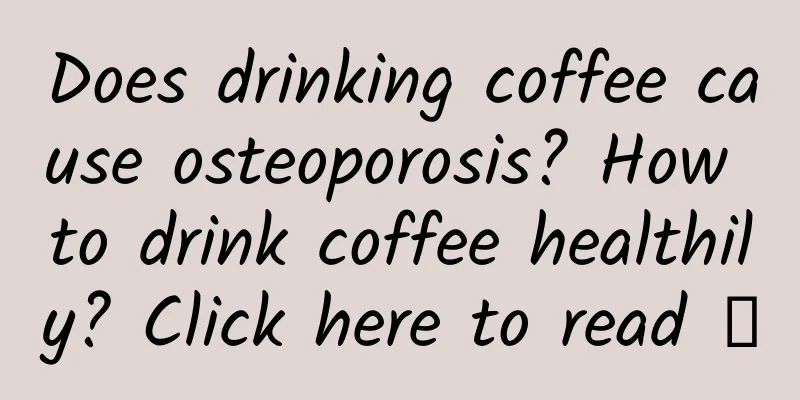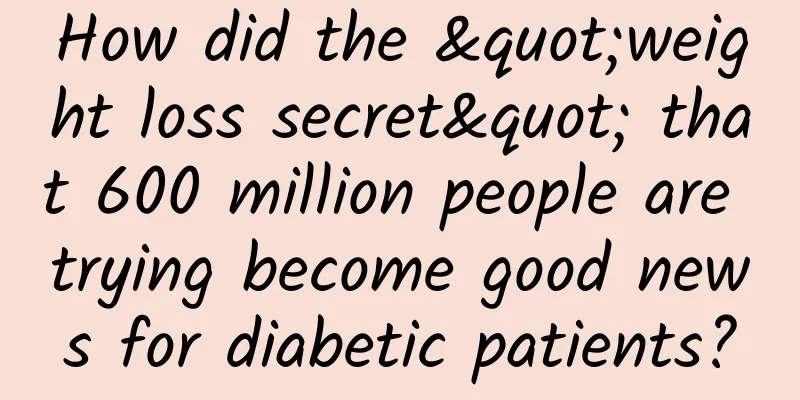Diabetics should beware of hypoglycemia when experiencing palpitations and cold sweats

|
When answering a question from a diabetic, Huazi told him to take precautions against hypoglycemia. He was puzzled. Isn't diabetes caused by high blood sugar? Why should we be on guard against hypoglycemia? Huazi told him that for diabetic patients, occasional high blood sugar is not a big problem, but if hypoglycemia occurs, it will lead to serious problems and even life-threatening. Huazi has a friend whose uncle suffered brain damage due to hypoglycemia. He stayed in the ICU for two weeks and eventually became a "vegetable". 1. Hypoglycemia is very harmful. Normal blood sugar in the human body is between 3.9 and 6.1 mmol/L. When the blood sugar of a healthy person is lower than 2.8 mmol/L, or when the blood sugar of a diabetic person is lower than 3.9 mmol/L, it is hypoglycemia. The human brain relies on glucose for energy. When hypoglycemia occurs, the brain cannot get enough energy supply and will "freeze". In the early stages, symptoms such as palpitations, hand tremors, and sweating will appear. As the severity worsens, symptoms of brain dysfunction such as mania, delirium, abnormal behavior, and mental confusion may appear, followed by coma. If effective treatment is not received within 6 hours, the brain will suffer from irreversible edema and necrosis. There was once a case in which a nurse injected insulin into the boyfriend while he was sleeping, which eventually led to his death. The nurse took advantage of the harm of hypoglycemia to the human body. 2. Common causes of hypoglycemia 1. Drinking on an empty stomach: Alcohol can prevent the decomposition of liver glycogen and gluconeogenesis in the human body. Drinking on an empty stomach can easily cause hypoglycemia and make people more easily drunk. Therefore, before drinking, you should eat some staple food to "fill the stomach" and do not drink on an empty stomach. 2. Reactive hypoglycemia: People who are obese or have prediabetes may have abnormal insulin secretion. If they eat too much carbohydrate food, it may stimulate excessive insulin secretion and cause reactive hypoglycemia 2 to 3 hours after the meal. 3. Tumor: Tumors occurring in the pancreas will stimulate excessive secretion of insulin, leading to recurrent symptoms of hypoglycemia. 4. Diabetes: Diabetics need to use hypoglycemic drugs, diet control and regular exercise to control blood sugar. Hypoglycemia is likely to occur when overdose, untimely meals or excessive exercise are taken. 3. Beware of panic and cold sweats. When hypoglycemia occurs, the initial symptoms are panic, cold sweats, and hand tremors. At this time, you should quickly replenish sugary foods. It is best for diabetics to carry candies and sugary drinks with them and eat them immediately when hypoglycemia symptoms occur. It should be noted that if the hypoglycemic drug contains α-glucosidase inhibitors such as acarbose and voglibose, it will inhibit the decomposition of polysaccharides and sucrose into glucose, and eating ordinary sugary foods cannot save the situation. After hypoglycemia occurs, glucose needs to be supplemented directly. Diabetic patients who are also taking Lolamine drugs should be careful, because Lolamine drugs can lower the heart rate, which may mask the symptoms of palpitations during hypoglycemia. Without the prodromal symptoms of hypoglycemia, they may directly go into brain dysfunction and coma. If a diabetic patient has fallen into a coma, it is not recommended to force-feed or give water, as this may enter the trachea by mistake and cause suffocation. At this time, you need to quickly call 120 emergency number and let the doctor rescue through intravenous infusion. It is recommended that diabetic patients carry a contact card with the disease and contact number written on it to facilitate rescue in case of an accident. To sum up, people with diabetes should pay attention to the threat of hypoglycemia while controlling blood sugar. Monitor blood sugar regularly and do not let it fall below 3.9mmol/L. If you experience panic or cold sweats, beware of hypoglycemia. Do not change medication dosages at will, eat on time, and do not exercise excessively. If you have any questions about medication, consult a doctor or pharmacist. I am pharmacist Huazi. Welcome to follow me and share more health knowledge. |
<<: What are the benefits of guava juice? How to squeeze guava juice
>>: Is plant-based meat healthier than animal-based meat?
Recommend
How to make delicious casserole rice noodles? Will eating casserole rice noodles make you fat?
Clay pot rice noodles are rich in nutrition. They...
What are the causes of fetal hypoxia in late pregnancy?
People need to breathe oxygen in their environmen...
Self-diagnosis method for common diseases of working women
As a result, health is neglected, which eventuall...
I feel a little nauseous after having sex.
Making love is something that every couple and ev...
Regular uterine contractions disappear in the morning after one night
Everyone knows that having a baby is a very natur...
What should I do if my period is delayed for 10 days and has not come yet?
Women may feel accustomed to the problem of delay...
Female bilateral renal cysts
Bilateral renal cysts are very common in chronic ...
Is it better to eat apples in the morning or at night? When is the best time to eat apples?
Apple is a common fruit in our daily life. It con...
Smoking is so harmful, why do so many people still smoke?
On World No Tobacco Day on May 31, a public servi...
How to correct breech position
When the pregnancy reaches the late stage, the do...
The benefits of moxibustion on the lower back of women
Moxibustion is a common method of health care and...
What are the causes of vaginal bleeding?
Normal menstruation is of great significance to w...
What are the symptoms of follicular implantation?
Follicular implantation is actually a manifestati...
What are the symptoms of high uric acid in women?
High uric acid level is a relatively common disea...
What side dishes are good for boiled duck? What side dishes are good for boiled duck?
We all know that duck meat is a common meat food....









